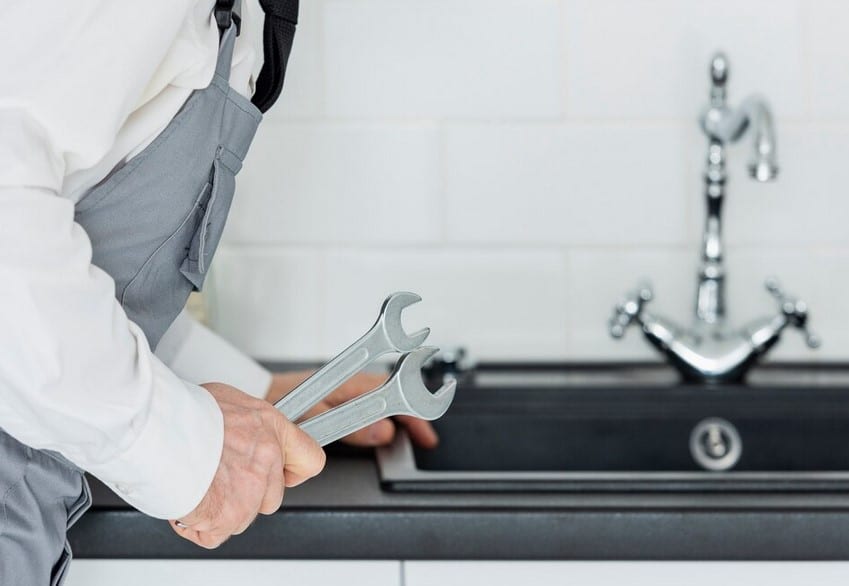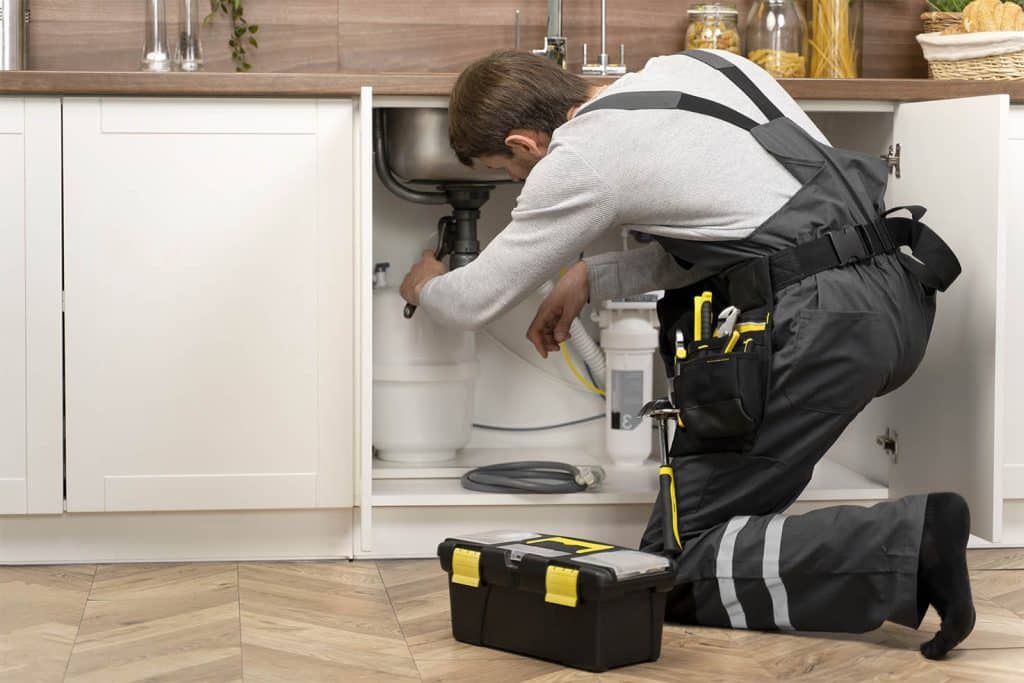Regular preventative plumbing maintenance is essential for homeowners to avoid unexpected repairs, conserve water, and extend the lifespan of their plumbing systems. By implementing the following strategies, you can ensure a well-maintained and efficient plumbing system in your home.
Table of Contents
Regular Inspection and Leak Detection
- Check for Visible Leaks and Drips. Regularly inspect faucets, showerheads, and exposed pipes for any signs of leaks or drips. Even minor leaks can lead to significant water waste and potential damage over time.
- Monitor Water Pressure Ensure your home’s water pressure is within the recommended range (typically 40-60 psi). High water pressure can strain pipes and fixtures, leading to leaks and damage.
Drain Maintenance and Clog Prevention
- Proper Disposal Practices Avoid flushing items like feminine hygiene products, cotton swabs, paper towels, baby wipes (even if labeled “flushable”), and hair down the toilet. These can cause significant blockages in your plumbing system.
- Use of Drain Guards Install strainers in sinks and showers to catch hair, food particles, and other debris, preventing them from entering the plumbing system and causing clogs.
- Regular Cleaning Clean drains regularly using natural solutions like baking soda and vinegar to prevent buildup and maintain smooth water flow.
Water Heater Maintenance
- Regular Flushing: Flush your water heater annually to remove sediment buildup, which can reduce efficiency and lifespan.
- Inspect Anode Rod Check and replace the anode rod as needed to prevent tank corrosion and extend the water heater’s life.
Pipe Maintenance
- Insulate Exposed Pipes Insulate pipes in unheated areas, such as basements and crawl spaces, to prevent freezing during colder months.
- Check for Corrosion. Regularly inspect pipes for signs of rust or Corrosion and address any issues promptly to prevent leaks or bursts.
Fixture Maintenance
- Inspect and Maintain Fixtures Regularly check toilets, sinks, and other fixtures for leaks or wear. Addressing minor issues promptly can prevent more significant problems later.
- Replace Worn-Out Parts Timely replacement of washers, seals, and other components can prevent leaks and ensure fixtures operate efficiently.
Seasonal Maintenance Tips
- Winter Preparations Before winter, insulate exposed pipes, disconnect garden hoses, and shut off outdoor faucets to reduce the risk of burst pipes.
- Summer Considerations During summer, be mindful of increased water usage and ensure your plumbing system can handle the demand without issues.
Professional Inspections
- Schedule Regular Professional Check-Ups: Hire a professional plumber periodically to inspect your plumbing system for any signs of wear, Corrosion, or potential issues.
- When to Call a Professional: If you notice persistent issues in your plumbing, such as slow drains, recurring leaks, or unusual noises, you should consult a professional plumber.
FAQs
How often should I inspect my plumbing for leaks?
It’s advisable to check visible pipes and fixtures and schedule professional inspections periodically.
What are the signs of high water pressure?
Symptoms include banging pipes, running toilets, and leaking faucets.
How can I prevent my pipes from freezing in winter?
Insulate exposed pipes, keep cabinet doors open to allow warm air circulation, and let faucets drip during extreme cold.
Is it safe to use chemical drain cleaners?
Avoid them, as they can corrode pipes; opt for mechanical methods or natural solutions instead.
When should I replace my water heater?
Regular maintenance can extend its lifespan, but consult a professional for specific recommendations.
Implementing these preventative measures can help homeowners maintain a reliable and efficient plumbing system, reducing the likelihood of unexpected repairs and extending the lifespan of their plumbing infrastructure.



